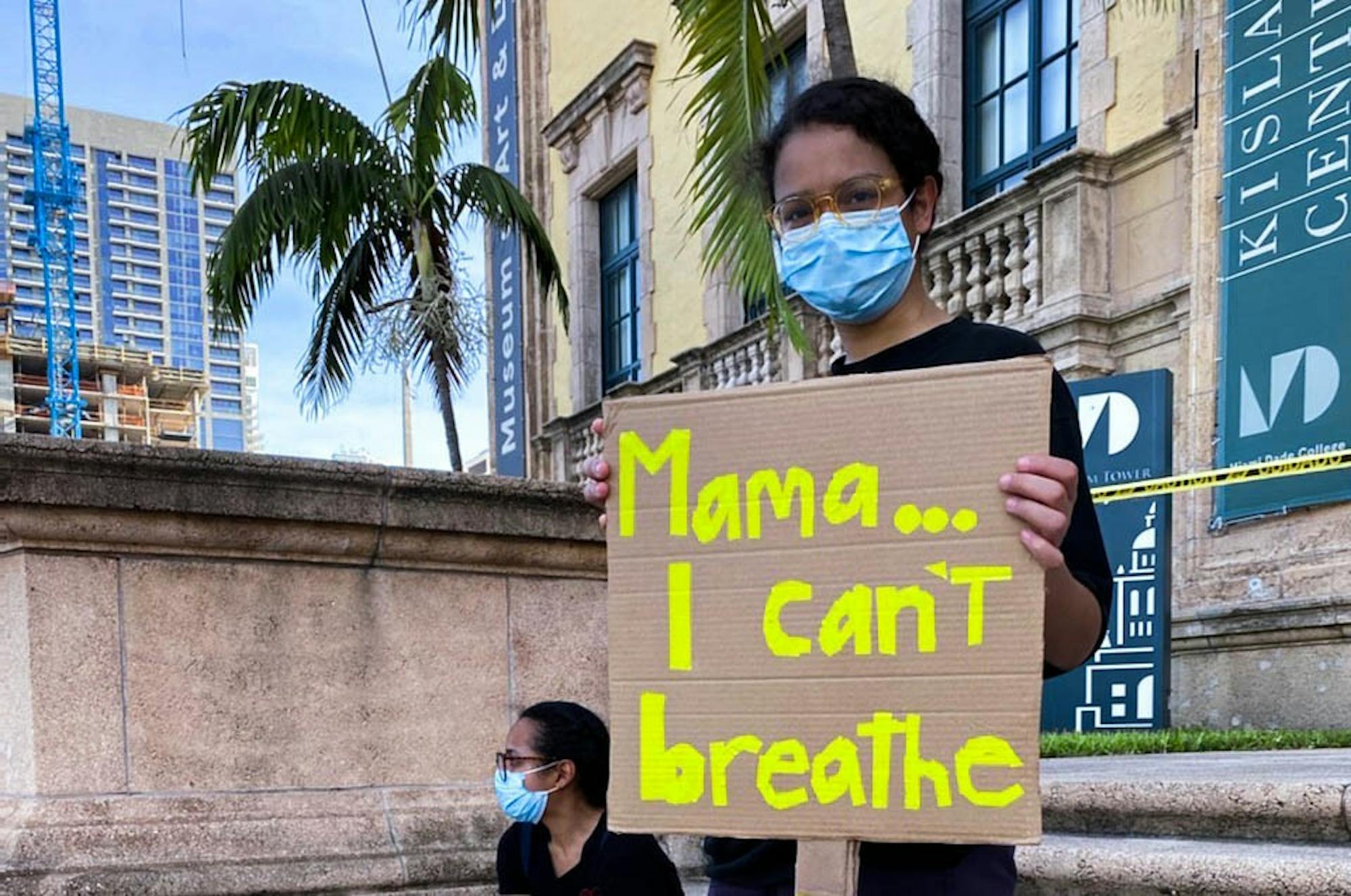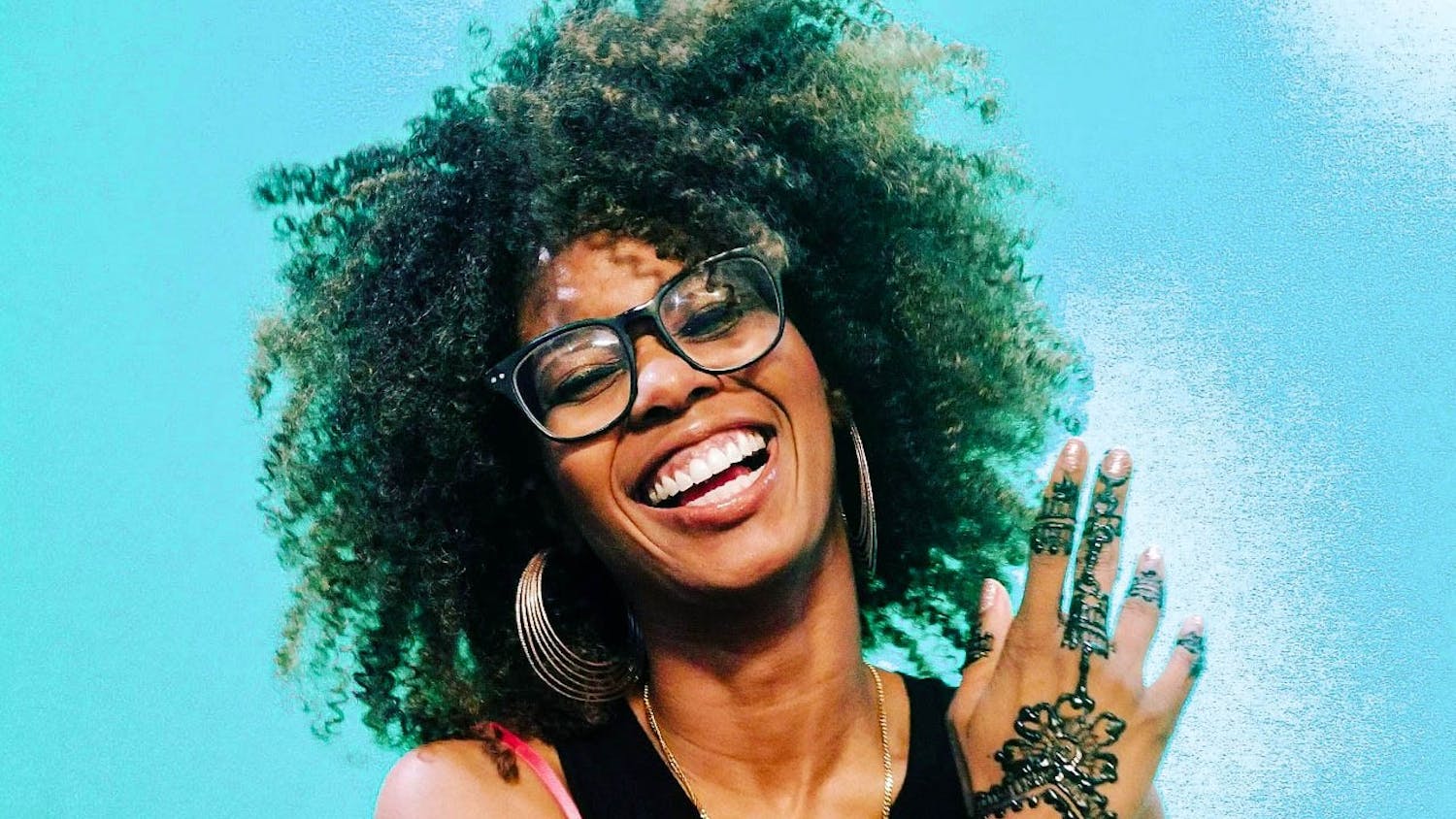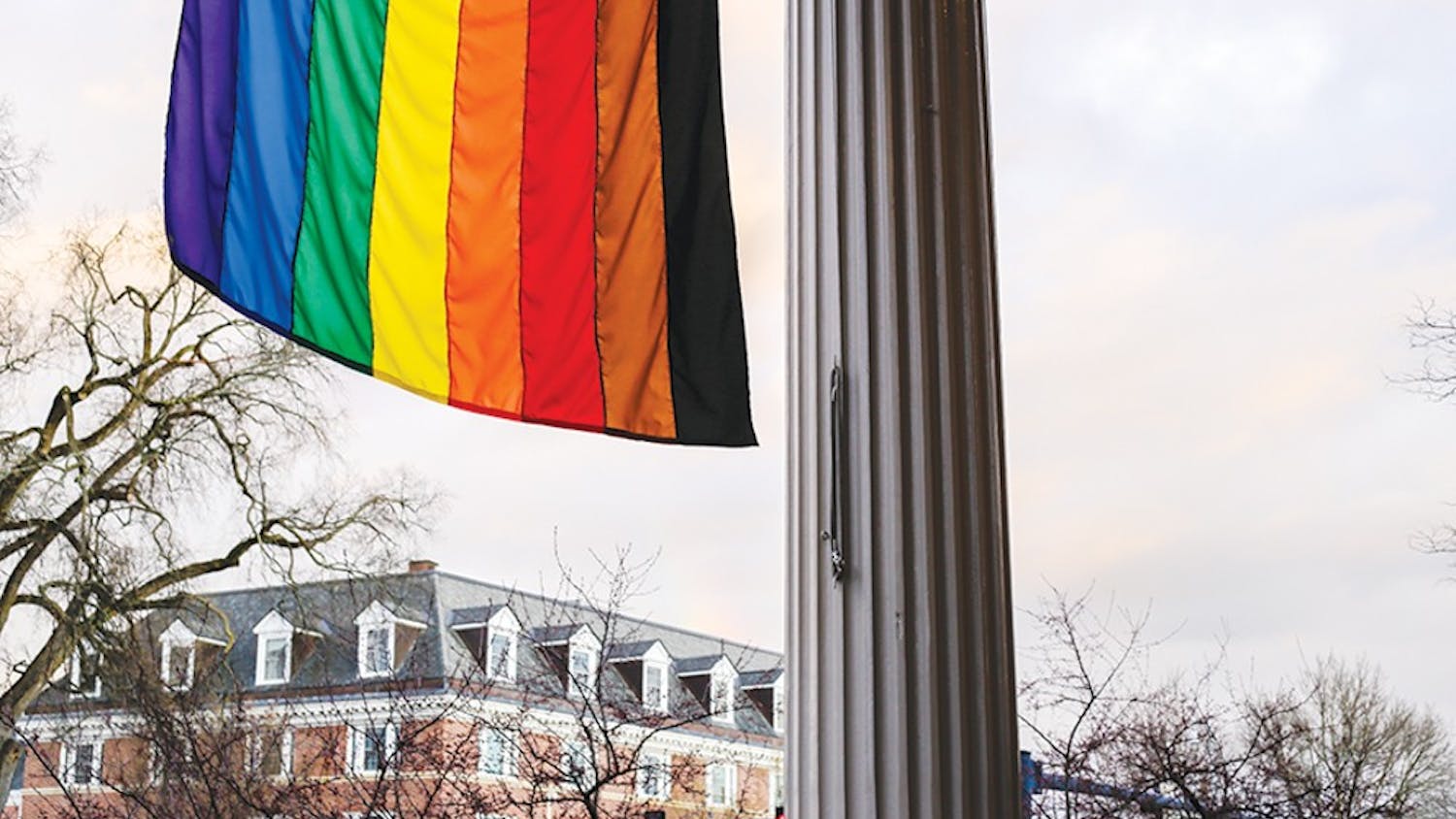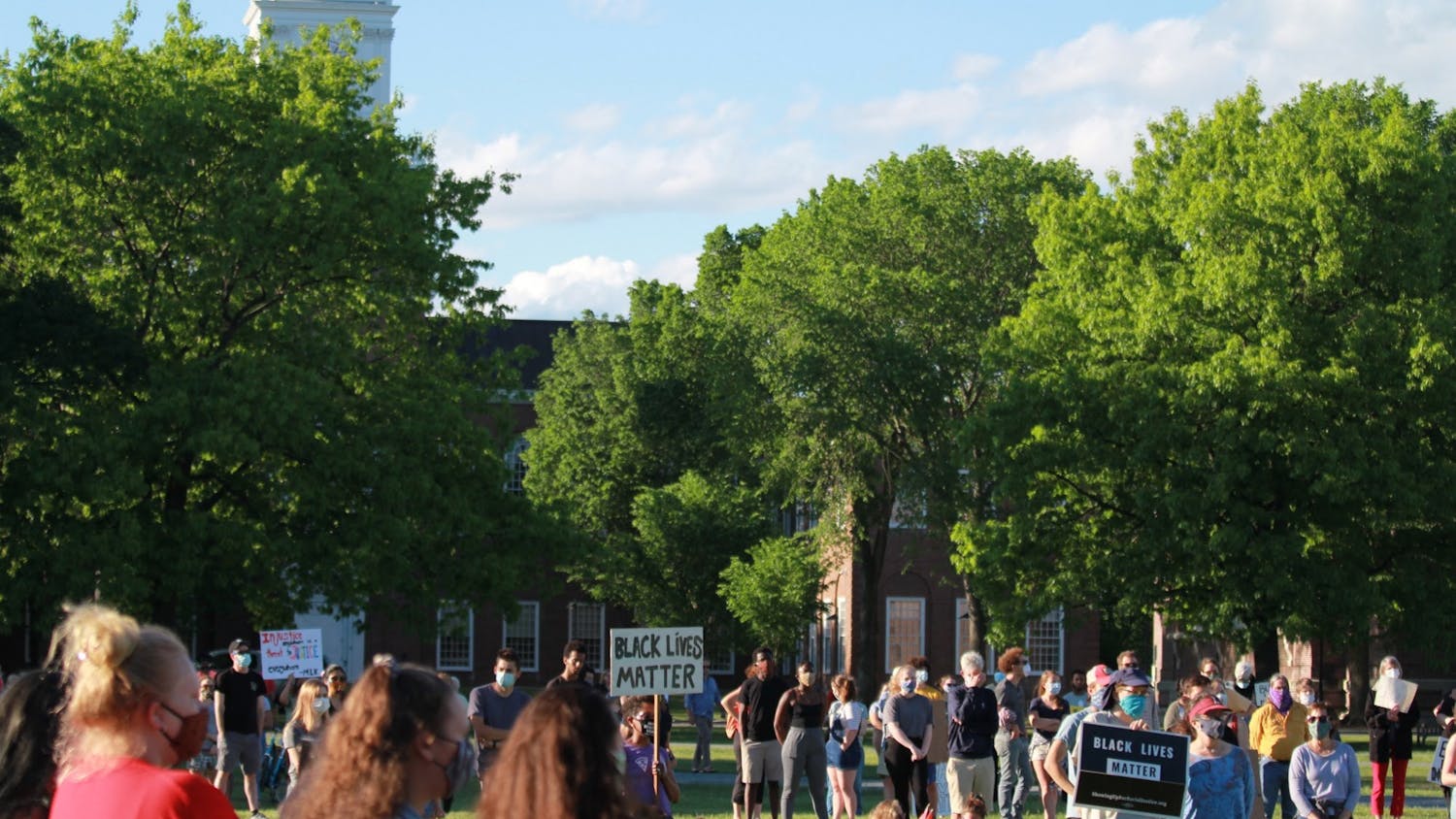Despite being away from campus, Dartmouth students have found ways to contribute to the Black Lives Matter movement within their local communities. Across the country, students are protesting, organizing, educating and creating art.
Marina Cepeda ’21 is from Miami, where she is organizing and participating in community action to defund the police for the Miami Dream Defenders — a youth action group founded after the death of Trayvon Martin.
On May 31, Cepeda attended a rally, marching in a four-hour protest across the city and stopping at a federal detention center and at the entrance to the Port of Miami. At the prison, Cepeda recalled seeing the people inside respond to the protestors, which she said was a powerful moment for her. Until a curfew that was called later in the evening, after which arrests were made and people fled, she said the protest was conducted peacefully.
“Everyone was there for a mission, for a goal of honoring the Black lives that were lost and protesting the police and the prison-industrial complex,” she said.
Besides protesting, Cepeda also makes flyers for a cause that would support parents who lost their children to police brutality. She hopes to host an online educational discussion to talk about “what it means to live in a world without poverty or incarceration.” She said she has also donated to a bail fund and continues to share infographics on Instagram.
When asked what she would be doing differently if she were on campus, Cepeda said that her energy would have been focused on holding the institution accountable rather than protesting for her own community in Miami.
Ian Scott ’24 is also from South Florida — a suburb called Miramar — which he describes as “left-leaning liberal, but not radical.”
He has helped organize two protests that were spearheaded by his high school classmates. The first was a sit-in at his city hall on June 3, which drew a crowd of 200 and was organized in an open-mic style.
The second was held last Saturday with protesters in a car caravan. Despite having a lower turnout, Scott said that he thought this protest was more effective because he and his fellow organizers had done research into the city budget so that protestors had a list of demands to present during their final statements.
While Scott hasn’t been able to protest due to health concerns, he recognizes that there are other ways to contribute.
“With the advent of the internet,” he said, “there are so many ways to keep people connected and informed and to make sure that people on the ground are getting the support they need from people who may not be able to go out in person.”
Scott is also part of an activism mentorship program at his high school called the Under a Tree Ethical Citizens Fellowship. Currently, his work with the program involves keeping people updated on national events, directing them to local organizations in Miami and Fort Lauderdale and posting reading lists on social media.
Scott has also made forays into activism at Dartmouth, co-moderating a community discussion between the Dartmouth Student Union and the Black Underground Theater Association. Right now he helps facilitate the DSU’s anti-racism classes, which teach on topics like activist burnout, respectability politics and the history of policing.

Ashleigh Brady ’21 has been to three protests in Wilmington, Delaware. The protests had mostly white participants and took place in predominantly white neighborhoods, according to Brady. She said that most people followed social distancing guidelines and that the police presence was nonviolent.
Brady said she plans on selling her art prints and donating 10 percent of the proceeds to Black-led grassroots organizations. Her prints are meant to “celebrate and acknowledge the different skin tones and facial features of Black women.”
Brady also campaigns for Amy Solomon, a Democrat running to be the state representative for Delaware’s 4th district. According to Brady, Solomon is running on a platform of desegregation, and while Delaware is not necessarily segregated, “the effects of red-lining are still very obvious.”
So far, Brady’s efforts have been focused on effecting change locally.
“I do have the global picture in mind, but you know, baby steps,” she said.
Attiya Khan ’22 lives just outside Seattle and has been to small local protests. Like Brady, she has largely seen peaceful, socially distanced protestors. On Juneteenth, she visited the “Capitol Hill Organized Protest,” an area stretching down East Pine Street in Seattle that is occupied by protestors. There, she saw people “chilling everywhere,” selling tacos and signing petitions. She describes the area as “great for homeless people” because there are stations that give away food and first aid supplies.
Khan has also been educating herself at home. Comfortable with calling herself a prison abolitionist, she describes the process of self-education as “a pretty wild ride” that has helped her see that the work of abolitionism is “mass defunding of police departments” as well as “abolishing the circumstances and conditions that necessitate crime.”
On her position in the Black Lives Matter movement, Khan said “it’s not hard to find solidarity there.” Because her father and uncles were harassed by the police after 9/11 for being Middle Eastern, she said she grew up understanding that “you’re never gonna call [the police], because they’re never gonna show up to your neighborhood in your part of town and actually help you.”
Samantha Locke ’22 said that she has also been grappling with her role in Black Lives Matter as a white ally. She went to two protests: one in Marin City, California on June 2 and one in San Francisco on June 3. She said the former felt like a “picnic” and the latter felt like a “parade” and said she worries that protests like these support the narrative of “white person gets so much better by learning not to be racist.” As part of the queer community, she also said that this is an opportunity for the Pride movement to become more inclusive of gay and trans people of color.
Locke feels that if she were on campus right now, she would not protest as often because it would not mean as much.
“If I’m not protecting Black bodies, and it’s white students marching around, I could probably better practice allyship by reading and learning,” she said.
Cepeda said that it’s important that the movement is Black-led and Black-centered, but she wants to see more energy from non-Black people. She said that Black Lives Matter is about creating “a world where we take care of our own.”
“This movement is for love,” Cepeda said. “It’s centered on love and healing, because that’s the only way you can sustain something.”




